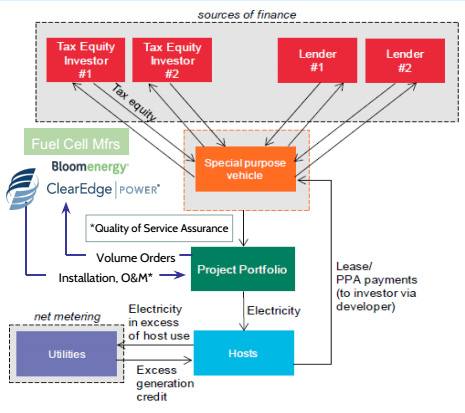Energy-guzzlers and pollution-emitters are some names that may get thrown around when placing businesses in context of the environment. But with the continued drainage of natural resources due to inefficient operating methods, the social and economic reasons for creating a more self-sufficient planet have come together as the issue has become more urgent. In Boston’s quest for sustainability, the old game plan of “reduce, reuse, recycle” has recruited a new teammate: business.
“When I was a college student, there was definitely a perception among environmentalists that was very ‘business versus environment,’” said Dr. James G. Baldwin, a lecturer in the department of earth and environment at Boston University. “I think that culture has since changed over the last few decades, and there are plenty of firms who are taking the idea of sustainability as a business principle.”
The business of being green is reflected in the city’s growing collection of green-minded companies that address different environmental problems with solutions ranging from innovative technology to more traditional methods.
BU-originated lighting software company ByteLight targets energy consumption by using high technology.
“The technology that we’ve developed uses LED lights to actually transmit data wirelessly,” said Dan Ryan, CEO and co-founder of ByteLight. “It’s pretty wild stuff.”
Though founded in 2011, the company’s concept was born out of research within BU’s Smart Lighting Engineering Research Center. Ryan, a 2010 College of Engineering graduate, worked in the lab and tinkered with ideas that would give LED lighting a whole new purpose.
ByteLight’s main focus is what Ryan calls “indoor location services.” Appropriately-named, these services incorporate GPS signaling with LED lighting to provide a new energy-efficient customer shopping experience.
“We’re taking GPS and bringing it indoors, and the vehicle is LED lighting,” Ryan said. “The LED lights actually provide a signal through the light itself that your smart phone detects…Then the user can use an application on their phone to navigate throughout the store and find where specific products are.”
Since installing its first lighting fixture in Boston’s Museum of Science, ByteLight has caught the eyes of many sustainability-minded individuals – including those at General Electric, who announced their partnership with the Bostonian business in June.
“GE [General Electric] obviously is the pioneer in lighting. I mean, it was founded by Thomas Edison,” Ryan said. “Right now, we’re focused on jointly working to bring our technology to market, and GE has some great retail clientele to help do that.”
In the meantime, ByteLight’s GPS features are spreading around Boston, specifically to high-end retail stores. Selling the software is a way of creating a positive environmental impact out of a simple and necessary business decision, Ryan said.
“From an energy efficiency standpoint, we see ByteLight as having the ability to drive the option of LED lighting much faster, therefore driving reduction in energy consumption and CO2 [carbon dioxide] emissions,” Ryan said.
But innovative technology is not the only way Bostonian companies channel their inner green.
LittleFoot Energy Corporation, a renewable energy project cooperation based in Somerville, focuses on helping individuals and businesses with renewable energy initiatives.
“It’s about solving the carbon problem for future generations – or little feet – to come,” said Kevin Poulsen, president and CEO of LittleFoot Energy.
Whether it’s a proposal to improve existing systems or for novel renewable sources, a client can approach LittleFoot Energy with both ideas and empty pockets.
“Our platform helps the client capture all their energy concepts and all their energy ideas and move them through the process to the point where management can approve them,” Poulsen said. “And a big thing that we’re bringing to the table to accelerate project approval is we’re bringing third-party finance…They [the client] don’t have to reach into pocket.”

By bringing larger energy companies into the proposal process, LittleFoot’s services are compensated through fees for business involvement. These companies get innovation, innovators get opportunities and LittleFoot gets the gratification of a job well done. It’s a sustainable model for an ongoing sustainability project, Poulsen said.
“Our company is all about moving to the next generation of energy infrastructure and doing it for good old fashioned capitalistic reasons,” he said. “If you depend on fossil fuels when there’s price fluctuation over time, the cost is unpredictable. If you use less energy and compliment it with alternative energy generation, then you break that dependency. So not only can it bring more to your bottom line today, it also is a hedge against the future.”
This economic mentality marks the newly found connection between environmentalism and the practice of business, Baldwin said.
“Now you don’t need to make as much of an ethical argument about environmental protection. The businesses can jump on it just because it makes money,” he said. “In a lot of ways, that’s an easier way to get people to change than trying to change people’s attitudes about things.”
Profits aside, some local businesses do their part by sticking with classic environmental remedies. Earthworm, a small recyclables transportation nonprofit in Somerville, has been doing so for over 40 years.
“It was three students at MIT [Massachusetts Institute of Technology] on Earth Day in 1970 who decided to prove that recycling was an activity that could sustain an organization financially and organizationally,” said Matthew DeMarrais, route driver and warehouse manager for Earthworm.
Those students collected and sold old computer punch cards, which eventually turned into the Recycling Revolutionary Coop, which then led to the advent of Earthworm.
The company offers contract-free recyclable pickup services on weekly and monthly schedules for a small fee.
“I’d say primarily right now, our niche has become people and smaller companies who have [a] building [but] don’t have good access to them,” DeMarrais said. “We tailor our program so that it’s affordable for them but also works with the logistics of their building.”
With government programs, awareness-raising organizations and businesses that are eco-friendly, Boston’s ecosystem and infrastructure has become one that supports green initiatives. The city’s ranking as seventh on Forbes’ list of “Top 10 Cities for Green Jobs” last year and specific initiatives such as Greenovate Boston and Sustainability@BU stand as proof.
“Boston’s actually not doing so bad,” Baldwin said. “There’s also quite a bit of renewable energy development going on in the city. If you just look around at some of the roofs on the buildings, you’ll start noticing that there are wind turbines and solar panels popping up.”
And whether it’s for financial survival or for the survival of planet Earth, from the looks of these efforts, Bostonian companies play into the city’s sustainable equation.
“There’s a shift in the direction that the world is going in that people are starting to realize that the earth is finite,” Baldwin said. “There are limits to the resources that we have.”















I admire the valuable information you offer in your articles about Environmentally-friendly businesses add strength to Boston’s sustainability efforts. Thanks for posting this informative article.